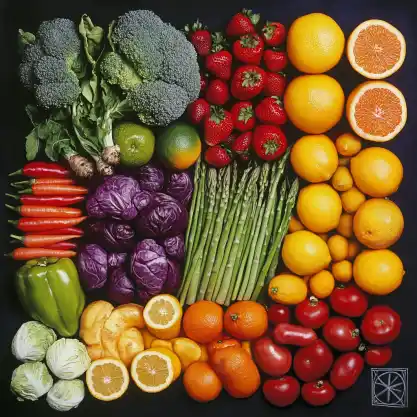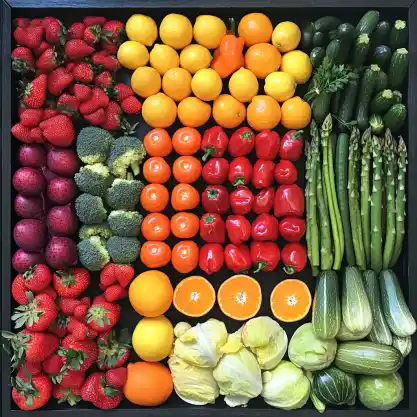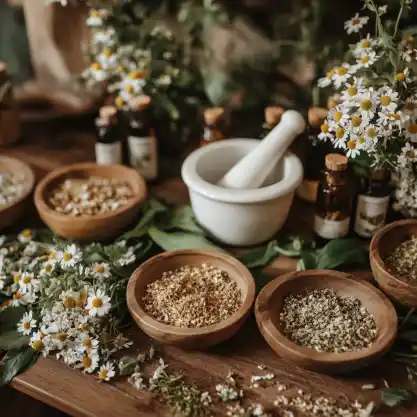Natural ingredients have been celebrated for centuries for their ability to elevate flavors, enhance health, and bring vitality to our lives. With a wide range of benefits, ingredients like herbs, oils, fruits, and superfoods can transform cooking, wellness, and beauty routines. Here’s a comprehensive guide to the wonders of nature’s ingredients, exploring their uses, benefits, and simple ways to incorporate them into your lifestyle.
Introduction to Ingredients and Their Benefits
Natural ingredients serve as the foundation of health-conscious diets, wellness practices, and skincare routines. Not only do they add unique flavors and nutrients to dishes, but they also promote holistic wellness and nurture the skin. By understanding the different uses and benefits of natural ingredients, you can unlock a world of flavors and healing properties that enhance your quality of life.
1. Commonly Used Ingredients and Their Health Benefits
Incorporating a variety of natural ingredients into your diet is one of the best ways to achieve a balanced and nutrient-rich lifestyle.
Herbs and Spices
Turmeric: Known for its anti-inflammatory properties, turmeric is popular in cooking and wellness drinks.
Ginger: Aids digestion and boosts immunity. Fresh or dried, ginger can enhance both savory and sweet dishes.
Rosemary: High in antioxidants, rosemary adds depth to meats, vegetables, and bread. For more on the natural beauty and complexity of plants, check out this article on the diverse beauty of seeds.”


Fruits and Vegetables
Fruits and vegetables provide essential vitamins, minerals, and antioxidants, which support overall health:
- Berries: High in antioxidants, making them great for heart health and brain function.
- Leafy Greens: Packed with nutrients, greens like spinach and kale are excellent for bone and skin health.
- Avocados: Loaded with healthy fats, avocados support cardiovascular health and add creaminess to dishes.


Nuts and Seeds
Nuts and seeds are versatile and nutrient-dense, making them an ideal addition to meals and snacks:
- Almonds: Rich in vitamin E, beneficial for skin and heart health.
- Chia Seeds: High in omega-3 fatty acids and fiber, perfect for smoothies or yogurt.
- Pumpkin Seeds: A great source of magnesium and zinc, essential for immune function.
For more information on growing some of these ingredients at home, visit this guide on vegetable gardening.

2. Cooking Ingredients and Their Culinary Uses
Cooking with natural ingredients can enhance flavor while supporting health. Here’s a look at some essential items and their uses in the kitchen.
Essential Oils and Extracts
Essential oils and extracts provide concentrated flavors, making them excellent additions to recipes:
- Vanilla Extract: Adds a rich aroma and flavor to desserts, baked goods, and beverages.
- Citrus Oils (Lemon, Orange): Brighten flavors in dressings, marinades, and cakes.
Grains and Legumes
Grains and legumes offer fiber, protein, and essential nutrients. They’re also incredibly versatile:
- Quinoa: A high-protein grain that’s perfect for salads, soups, and grain bowls.
- Lentils: Provide plant-based protein and can be used in soups, stews, and salads.
- Chickpeas: High in fiber and protein, ideal for making hummus or adding to salads.

Sweeteners
Natural sweeteners can add flavor without the processed ingredients found in refined sugars:
- Honey: Contains antioxidants and adds sweetness to both hot and cold dishes.
- Maple Syrup: Rich in vitamins and minerals, ideal for baking and breakfast dishes.
- Dates: Natural sugar with fiber, perfect for blending into smoothies or desserts.


3. Ingredients for Natural Wellness
Many ingredients have therapeutic uses that can support relaxation, immunity, and general wellness.
Herbal Remedies
Herbal remedies are age-old practices that leverage the power of plants to promote health and wellbeing:
- Chamomile: Known for its calming effects, chamomile tea aids in relaxation and better sleep.
- Lavender: Used in aromatherapy, lavender oil promotes relaxation and stress relief.
- Peppermint: Aids digestion and soothes headaches when used in teas or essential oils.

Superfoods
Superfoods are nutrient-dense ingredients that support energy and immunity:
- Chia Seeds: Loaded with omega-3s, fiber, and antioxidants, ideal for energy-boosting recipes.
- Spirulina: A blue-green algae with high protein and iron, perfect for smoothies.
- Acai: Known for its high antioxidant content, acai berries are commonly used in smoothie bowls.
Essential Oils for Wellness
Essential oils can enhance wellness routines and are often used in aromatherapy:
- Eucalyptus: Known for its respiratory benefits, eucalyptus oil is great for steam inhalation.
- Lavender: Often used in relaxation and sleep-aid products.
- Tea Tree: Known for its antiseptic properties, frequently used in skincare.

4. Ingredients in Skincare and Beauty Products
Natural ingredients have become increasingly popular in skincare due to their gentle, nourishing effects on skin and hair.
Plant-Based Oils
Natural oils are hydrating and beneficial for various skin types:
- Coconut Oil: Deeply moisturizing, suitable for dry skin and hair treatments.
- Jojoba Oil: Balances oil production and is well-suited for most skin types.
- Almond Oil: Rich in vitamins, ideal for moisturizing and reducing skin inflammation.

Natural Exfoliants
Exfoliants help remove dead skin cells, giving the skin a fresh, radiant look:
- Oatmeal: Gentle on sensitive skin, oatmeal soothes irritation while exfoliating.
- Sugar: A natural humectant that exfoliates and hydrates, commonly used in body scrubs.
- Coffee Grounds: Rich in antioxidants, coffee grounds help improve circulation and reduce puffiness.

Anti-Aging and Hydrating Ingredients
Certain ingredients have anti-aging and hydrating benefits that support youthful skin:
- Aloe Vera: Hydrates and soothes, excellent for sunburn and skin inflammation.
- Honey: Naturally antibacterial, honey locks in moisture for soft, hydrated skin.
- Rose Water: A gentle astringent that refreshes and balances the skin’s pH.
5. DIY Recipes Using Natural Ingredients
Incorporating natural ingredients into DIY recipes is a great way to enjoy their benefits at home. Here are some easy-to-make recipes.
Cooking Recipes
- Herb-Infused Olive Oil: Add fresh rosemary and garlic to olive oil for a flavorful cooking and dipping oil.
- Smoothie Bowl with Superfoods: Blend acai, bananas, and almond milk, then top with chia seeds, nuts, and berries.
Wellness Recipes
- Relaxing Herbal Tea Blend: Combine chamomile, peppermint, and lavender for a calming herbal tea.
- Energy-Boosting Smoothie: Blend spirulina, chia seeds, and pineapple for a nutrient-rich drink.
Skincare Recipes
- Honey and Oat Face Mask: Mix honey with ground oats for a gentle, hydrating face mask.
- Coconut Oil Sugar Scrub: Combine coconut oil with sugar for a natural body scrub that leaves skin soft and moisturized.
6. Tips for Choosing Quality Ingredients
Quality is essential when selecting natural ingredients, as it ensures you’re getting the maximum benefits.
- Source Organic Ingredients: Organic ingredients are free from pesticides, ensuring they’re safe for your health and the environment.
- Check Labels and Certifications: Look for certifications such as USDA Organic or Fair Trade to ensure high standards.
Frequently Asked Questions
What are the best natural ingredients for skin health?
Ingredients like aloe vera, honey, and almond oil are highly effective for hydrating and nourishing the skin.
How can I incorporate more nutrient-dense ingredients into my diet?
Start by adding superfoods like chia seeds, spinach, and berries to your daily meals, such as smoothies, salads, and snacks.
What are the most versatile ingredients to have in my pantry?
Olive oil, honey, nuts, and oats are versatile staples that work well in cooking, wellness, and skincare routines.

